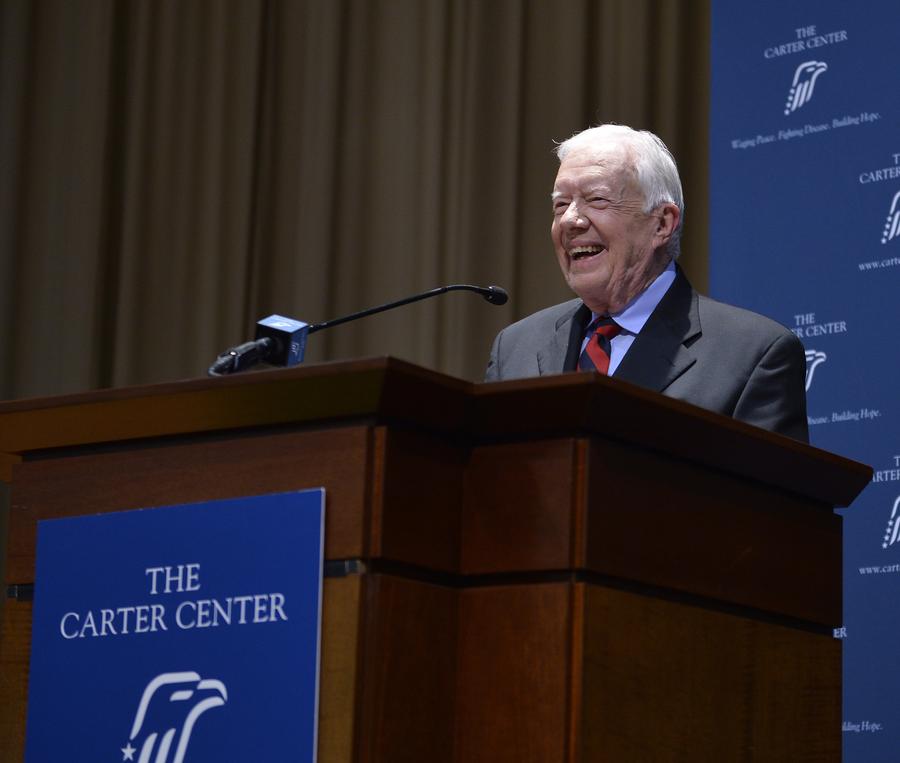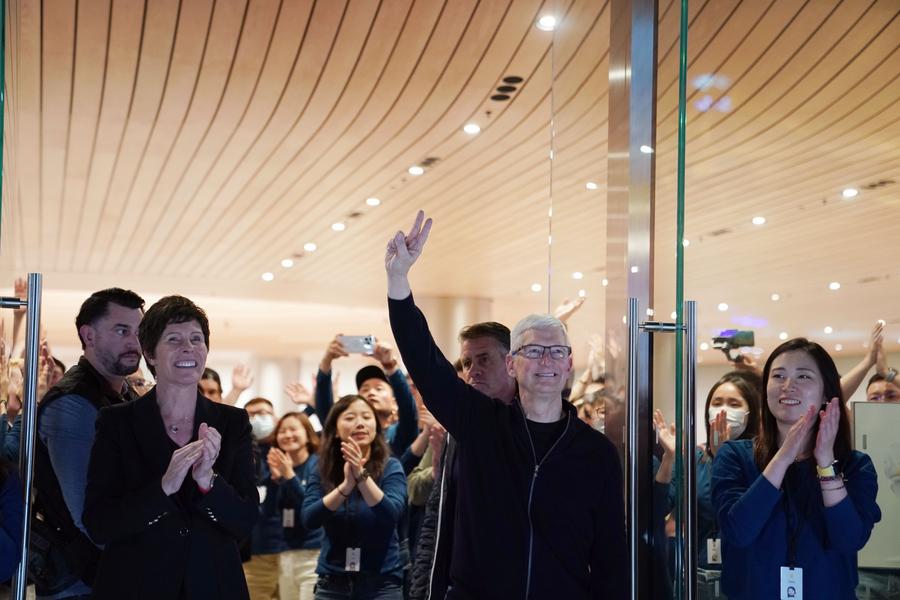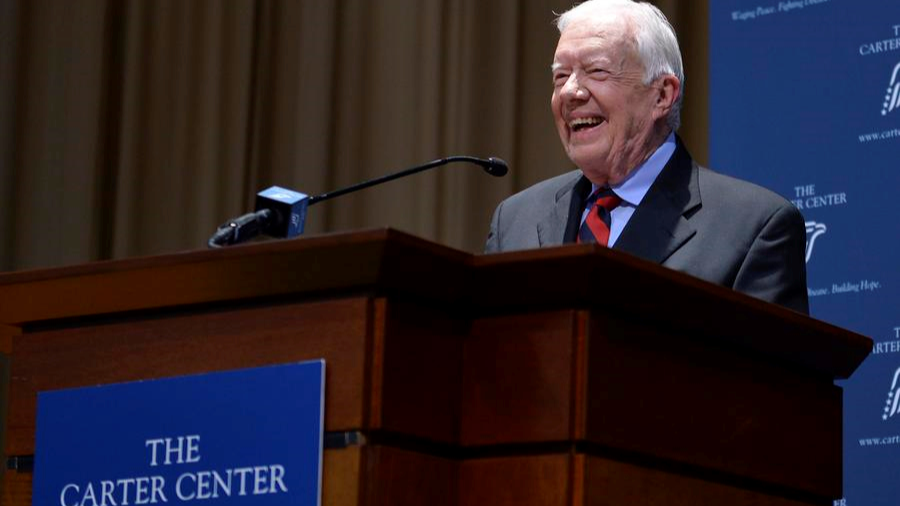This file photo shows former U.S. President Jimmy Carter attending an event at the Carter Center in Atlanta, the United States, July 17, 2014. (Xinhua/Bao Dandan)
Today, as the China-U.S. relationship is encountering heavy headwinds, Carter's legacy serves as a reminder to Washington of the importance of strategic sobriety and vision.
by Xinhua writer Deng Xianlai
WASHINGTON, Jan. 1 (Xinhua) -- Jan. 1, 2025, marks the 46th anniversary of the establishment of China-U.S. diplomatic relations.
Against the backdrop of profound changes unseen in a century and clamorous anti-China rhetoric among some U.S. politicians, it is time to remember late U.S. President Jimmy Carter's legacy and navigate this pivotal relationship forward.
Carter's determination to normalize China-U.S. relations in 1979, which he referred to as the "crowning achievement of his life," testified to his vision and courage.
Amid Cold War tensions, Carter acted decisively to sever official ties with Taiwan, setting the stage for steady and sound growth of bilateral ties.
Today, as the bilateral relationship is encountering heavy headwinds, Carter's legacy serves as a reminder to Washington of the importance of strategic sobriety and vision.
If history is any guide, at the core of a sound China-U.S. relationship stands the common understanding that, despite widely differing political systems, historical experiences, and cultural backgrounds, the two countries share a profound stake in the stability and prosperity of the world.
Over the past 46 years, this commitment to cooperation has been instrumental in addressing global challenges and bringing about tremendous benefits to both sides and the world at large.
China-U.S. relations are, in essence, defined by mutual benefit and win-win cooperation. Over the years, both nations have leveraged their complementary strengths to make bigger the "pie" of cooperation, bringing tangible benefits to both peoples.
Economic and trade cooperation has laid the cornerstone of their relationship, with trade having shot up more than 200-fold. Two-way investments have topped 260 billion U.S. dollars, with over 70,000 American companies operating in China and generating annual profits of 50 billion dollars. On top of these, exports to China support 930,000 jobs back in the United States.
Despite clamorous "decoupling" and "de-risking" rhetoric among some U.S. politicians, China-U.S. cooperation has by no means been a zero-sum game.
Over decades of development, the interests of the two countries have become deeply intertwined. The path of mutual benefit remains the only viable choice for both. As Apple CEO Tim Cook quipped, "There's no supply chain in the world that's more critical to us than China."
Apple CEO Tim Cook attends the opening of a new flagship Apple store in east China's Shanghai, March 21, 2024. (Xinhua/Liu Ying)
Rather than define the relationship in a zero-sum rivalry mentality, the United States needs to work with China to focus on expanding the areas of converging interests and finding the maximum common ground. Whether in trade, scientific innovation, people-to-people exchanges, or pursuit of world peace, opportunities for win-win outcomes abound.
The China-U.S. relationship has long gone beyond a bilateral scope and become a crucial factor in shaping the future of humanity.
In a rapidly evolving international landscape, Carter's legacy serves as an earnest exhortation that China and the United States must explore the right way to get along with each other, not least by engaging in dialogue, managing differences, enhancing mutual trust, removing misunderstandings and expanding cooperation, so as to deliver benefits to the two countries and the world at large.






 A single purchase
A single purchase









